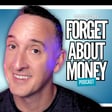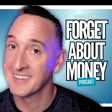
🏆 Spend Planning! | Holly Morphew on Why Spend Planning Beats Budgeting 💰
Watch this episode and subscribe on YouTube
🌟 Join Holly Morphew in this transformative video as she unveils the power of Spend Planning to not only manage your finances but to achieve long-term financial freedom and wealth building.
Enjoy Holly's expert insights on transitioning from traditional budgeting to the more dynamic Spend Planning approach and learn how to leverage it for your financial success.
📊 In this detailed guide, Holly will cover everything from the basics of Spend Planning to mastering cash flow management and overcoming common challenges. Whether you're a beginner looking to understand the fundamentals or an experienced planner aiming for financial independence, this video has something for everyone.
🔗 Chapters:
0:00 - Introduction
1:41 - Spend Planning vs. Budgeting
5:46 - Real-Life Transformations
11:18 - Initiating Your Spend Plan
26:15 - Practical Steps for Planning
33:58 - Mastering Cash Flow
38:18 - Overcoming Spend Plan Challenges
40:48 - Five Key Steps Recap
43:18 - Cash Flow Strategies for Early Retirement
43:44 - Final Thoughts on Spend Planning
🛠️ 5 Steps of Spend Planning:
1. Financial Awareness: Start by creating a net worth statement to get a clear overview of your financial health.
2. Track Spending Using an App: Holly recommends using the Tiller App [https://www.tillerhq.com/?via=holly] to keep an accurate record of your finances.
3. Refine Your Net Worth Statement: Continuously update your financial statement as you track your expenses over the next 3-6 months.
4. Calculate Your Impact Number: Identify the surplus money that can be used to reduce debt or invest in assets.
5. Invest in the Highest and Best Use of Your Dollars: Strategically use your impact number to maximize your financial growth.
🔗 Connect with Holly Morphew:
Holly's Book: [https://a.co/d/aI2hcZF]
Holly's Freebies: [https://financialimpact.com/freebies/]
Facebook: [https://www.facebook.com/HollyMorph]
Instagram: [https://www.instagram.com/hollymorph/]
LinkedIn: [https://www.linkedin.com/in/hollymorph/]
Twitter: [https://twitter.com/HollyMorph]
Holly's Facebook Group: [https://www.facebook.com/FinancialImpactSystem]
💡 Whether you're planning for retirement, looking to become debt-free, or aiming to enhance your wealth, Spend Planning can be your pathway to success. Don't forget to subscribe for more financial insights and strategies from Holly Morphew!
#SpendPlanning #FinancialFreedom #HollyMorphew #DebtFreeJourney #WealthBuilding #FinancialCoaching #MoneyManagement #Investing #RetirementPlanning #FinancialIndependence
👍 Like, Comment, and Share if you found this video helpful, and don't forget to subscribe for more valuable financial tips and strategies!

